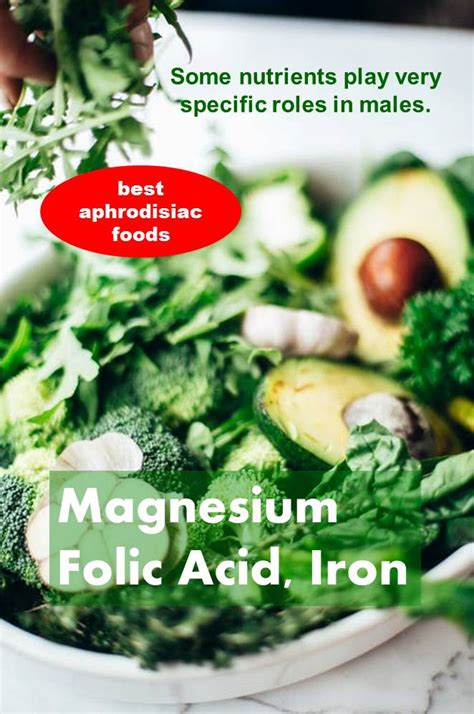What nutrients optimize male energy, focus, and recovery for peak performance?

Achieving peak performance isn’t just about training hard; it’s profoundly influenced by what you put into your body. For men aiming to optimize their energy, sharpen focus, and accelerate recovery, a targeted nutritional strategy is paramount. Understanding which nutrients play a critical role can transform your physical and mental output, helping you reach new heights in every aspect of life.
Fueling Energy: The Powerhouses
Sustained energy is the bedrock of peak performance. Without it, both physical and mental tasks become a struggle. Key nutrients act as cofactors in metabolic pathways, converting food into usable energy.
- B Vitamins (B1, B2, B3, B5, B6, B7, B9, B12): These vitamins are central to cellular energy production, helping to metabolize carbohydrates, fats, and proteins. B12, in particular, is vital for red blood cell formation and neurological function, directly impacting energy levels.
- Magnesium: Involved in over 300 enzymatic reactions, magnesium is crucial for ATP (the body’s primary energy currency) production. It also plays a role in muscle function, nerve transmission, and blood glucose control, all of which contribute to stable energy.
- Iron: Essential for oxygen transport via hemoglobin in red blood cells. Insufficient iron leads to anemia, causing fatigue and reduced physical performance. Men, particularly athletes, need adequate iron intake.
- Coenzyme Q10 (CoQ10): A powerful antioxidant found in the mitochondria, CoQ10 is directly involved in producing ATP. Supplementing with CoQ10 can support energy levels and reduce oxidative stress, especially beneficial for active individuals.

Sharpening Focus: Cognitive Boosters
Mental clarity and sustained focus are as important as physical energy, especially in demanding environments. Certain nutrients directly support brain health and cognitive function.
- Omega-3 Fatty Acids (EPA & DHA): Found abundantly in fatty fish, these essential fats are critical for brain structure and function. DHA is a major component of brain cell membranes, supporting neurotransmission and reducing inflammation, which can impair focus.
- Choline: A precursor to acetylcholine, a neurotransmitter vital for memory, learning, and attention. Choline intake supports cognitive processing and mental sharpness.
- L-Tyrosine: An amino acid that is a precursor to dopamine, norepinephrine, and epinephrine – neurotransmitters involved in mood, motivation, and stress response. Supplementation can support focus, especially during stressful periods or sleep deprivation.
- Creatine: While known for muscle performance, creatine also benefits brain health. It supports ATP regeneration in brain cells, potentially enhancing cognitive function, memory, and reducing mental fatigue.

Accelerating Recovery: Rebuilding and Repair
Effective recovery is crucial for adaptation, muscle growth, and preventing overtraining. Nutrition plays a pivotal role in repairing tissues, reducing inflammation, and replenishing stores.
- High-Quality Protein: Essential for muscle repair and growth, protein provides the amino acid building blocks. Sources like lean meats, poultry, fish, eggs, dairy, and plant-based proteins are vital post-exercise.
- Zinc: A trace mineral involved in numerous enzymatic processes, including protein synthesis, immune function, and testosterone production. Adequate zinc supports tissue repair and hormonal balance crucial for recovery.
- Vitamin D: Beyond bone health, Vitamin D plays a role in muscle function, immune health, and reducing inflammation. Optimal levels can enhance recovery and reduce muscle soreness.
- Antioxidants (Vitamins C, E, Selenium): Intense exercise generates reactive oxygen species. Antioxidants combat oxidative stress, reducing cellular damage and inflammation, thereby supporting faster recovery.

Beyond Nutrients: A Holistic Approach
While specific nutrients are vital, their efficacy is amplified within a holistic lifestyle. A balanced diet rich in whole foods, adequate hydration, and sufficient sleep create the optimal environment for these nutrients to work their magic.
- Whole Foods Diet: Prioritize fruits, vegetables, whole grains, lean proteins, and healthy fats. These foods provide a complex array of nutrients, fiber, and phytonutrients that work synergistically.
- Hydration: Water is critical for all bodily functions, including nutrient transport, temperature regulation, and joint lubrication. Dehydration can severely impair energy, focus, and recovery.
- Sleep: Quality sleep is when the body performs most of its repair and recovery processes. No amount of nutrition can fully compensate for chronic sleep deprivation.

Practical Application: Integrating into Your Diet
To integrate these nutrients effectively, focus on a varied and nutrient-dense diet. Include sources like:
- Energy: Whole grains, nuts, seeds, leafy greens, lean meats, eggs, fish.
- Focus: Fatty fish (salmon, mackerel), eggs, beef liver, soybeans, chia seeds, flaxseeds.
- Recovery: Poultry, red meat, dairy, legumes, nuts, seeds, citrus fruits, berries, bell peppers.
While diet should be the primary focus, targeted supplementation can fill nutritional gaps, especially for highly active individuals or those with specific dietary restrictions. Consulting with a healthcare professional or registered dietitian can help tailor a plan specific to your needs and performance goals.

Optimizing male energy, focus, and recovery for peak performance is an intricate dance of essential nutrients and smart lifestyle choices. By strategically fueling your body with the right vitamins, minerals, proteins, and fats, you can unlock your full potential, not just physically, but mentally, leading to a more productive and fulfilling life.









